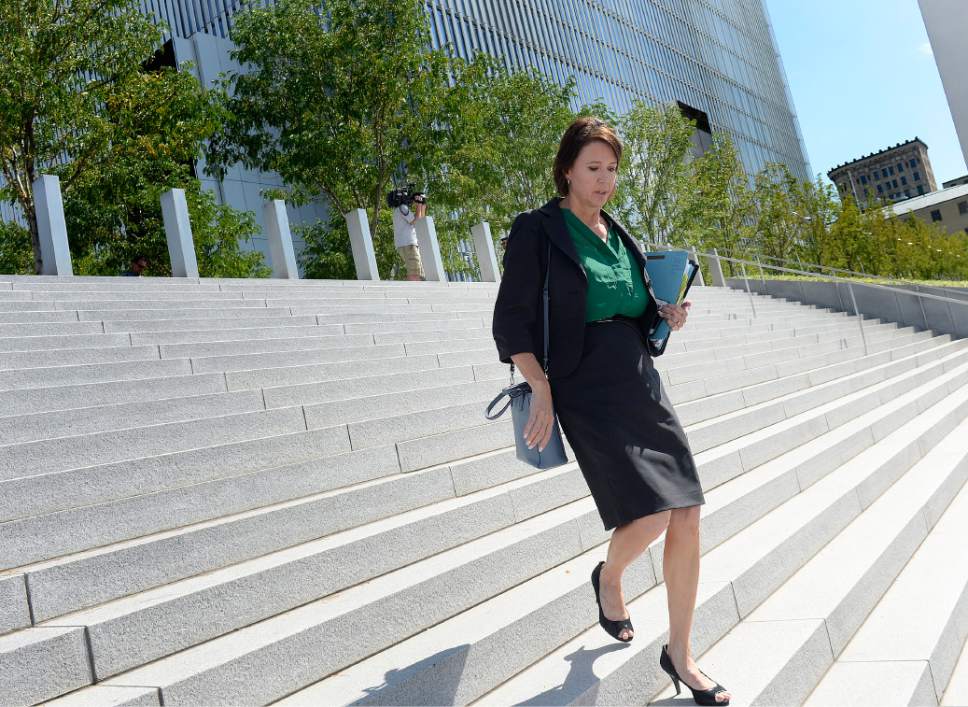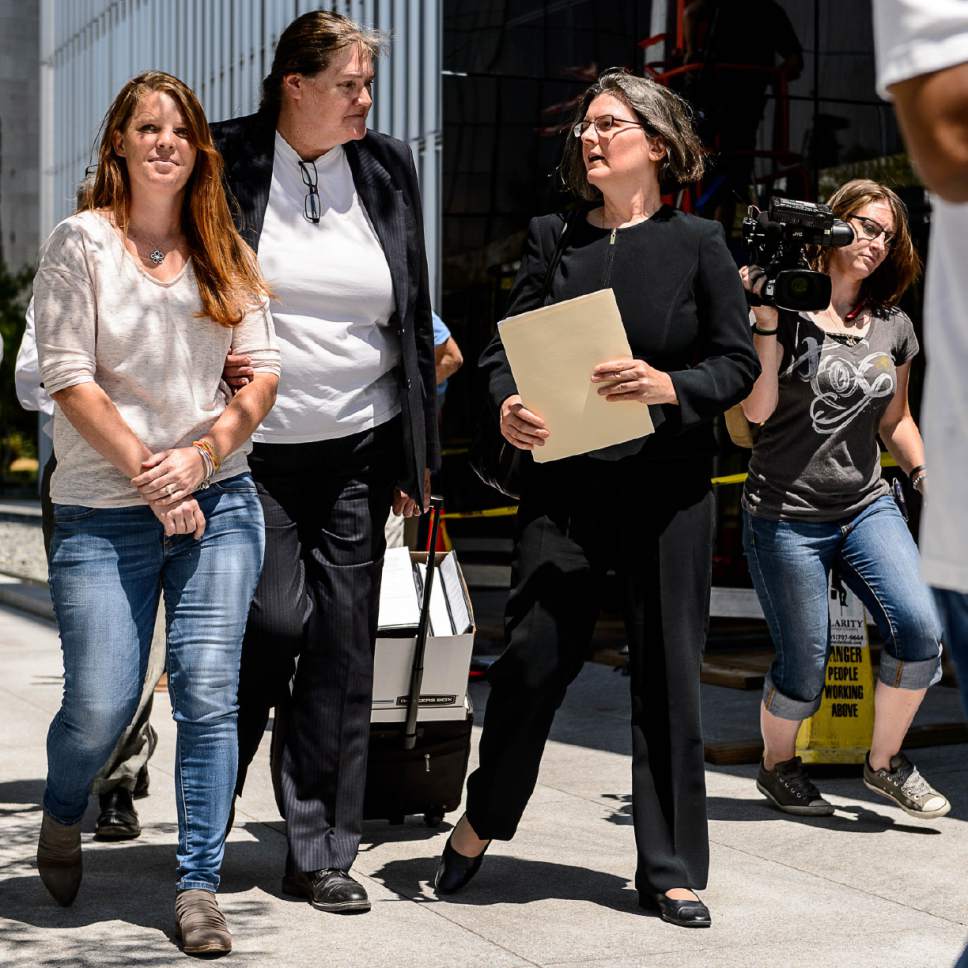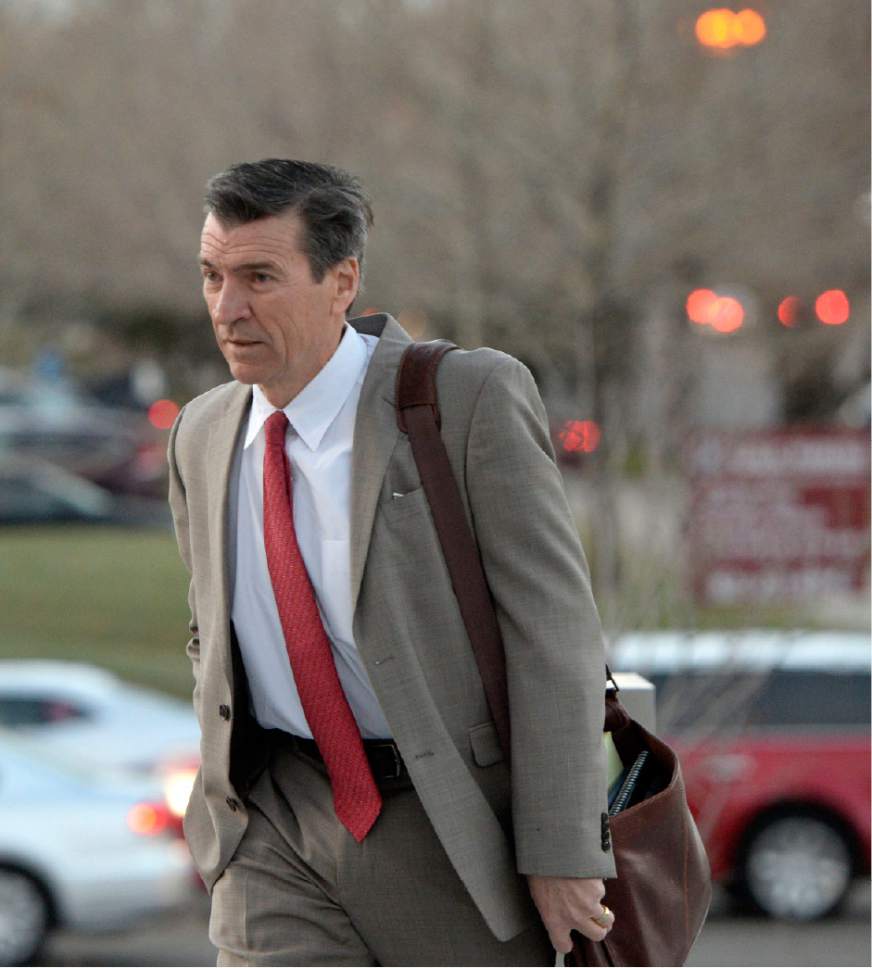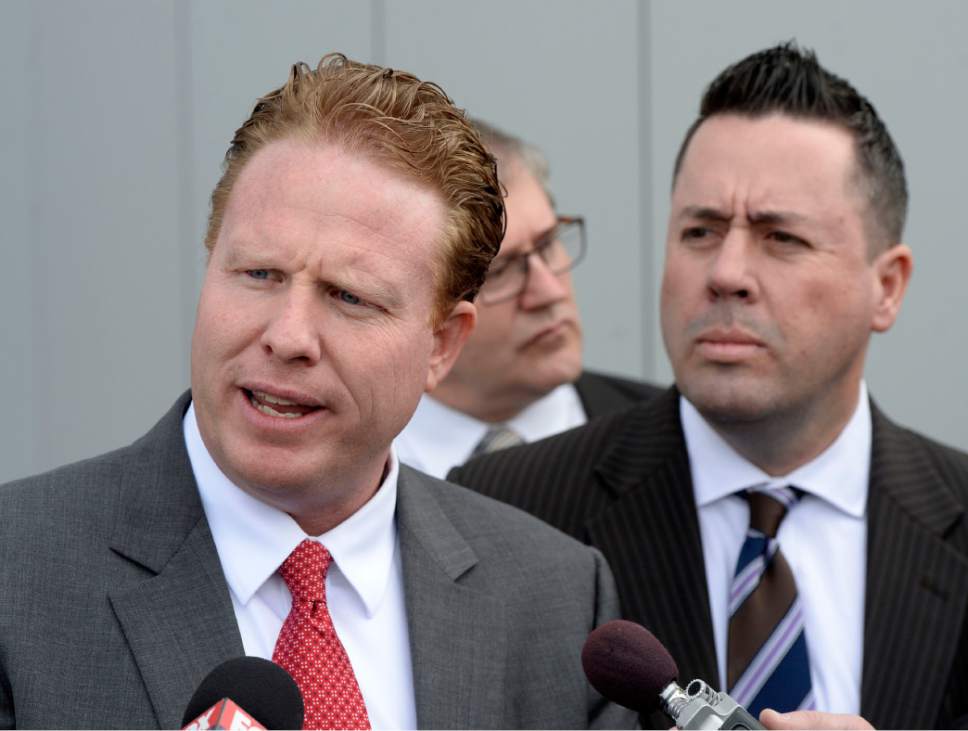This is an archived article that was published on sltrib.com in 2017, and information in the article may be outdated. It is provided only for personal research purposes and may not be reprinted.
U.S. Magistrate Judge Paul Warner may have told attorneys for now-imprisoned businessman Jeremy Johnson not to disclose a possible conflict of interest that involved a potential key witness in Johnson's fraud trial, according to a new court filing in the high-profile case.
The issue is certain to form part of the appeal by Johnson's attorneys who are seeking to overturn his March 2016 conviction.
In a document filed this week in Johnson's federal criminal case, attorneys Karra Porter and Mary Corporon lay out evidence that led Johnson to conclude that Warner told attorney Rebecca Skordas not to disclose to Johnson that she had represented a businessman named Justin Lund, who operated the main affiliate of Johnson's internet marketing company called I Works.
The "statement of evidence" was filed after U.S. District Judge David Nuffer, who presided over Johnson's trial, denied the attorneys' motion to hold a hearing in which they could subpoena testimony from Skordas and her attorney husband Greg Skordas about the conflict issue and their private meeting with Warner in which it was discussed. They also wanted to subpoena two court officials, presumably including Warner, according to court documents.
No transcript or recording was made of the private meeting involving Warner and the Skordases on Sept. 25, 2015, several months before Johnson's trial. But Nuffer, in turning down the request for a hearing, said an adequate record had been made between a sealed entry in the court docket and a subsequent December 2015 proceeding in his office, where Johnson was present.
In their latest filing, Porter and Corporon rely for evidence on a statement from Johnson, a transcript of the December 2015 meeting and other documents, some of which are completely redacted in the publicly available court record.
Attorney conflicts of interest — such as current or previous representation of people or companies involved in a matter with a potential new client — are standard causes for attorneys or firms to decline taking cases.
The Utah State Bar requires disclosure of conflicts to potential clients, and their agreement in writing, to continue. The "critical questions," the rules say, are whether there is a likelihood that a divergence of interests will arise between clients.
Warner appointed Rebecca and Greg Skordas to represent Johnson in July 2015 when Johnson's attorneys, Ron Yengich and Chelsea Koch, withdrew. At that time, Johnson signed a waiver of a conflict of interest that involved Rebecca Skordas' representation of Scott Muir, Johnson's uncle. But no mention was made of any other possible conflicts.
In September 2015, while examining evidence for his upcoming trial, Johnson said he came across a memo that showed that Rebecca Skordas also had represented Lund during an interview with the federal prosecution team in his criminal case. In court documents, Johnson said he was concerned about the conflict because he believed that Lund's company had been responsible for much of the consumer credit card chargebacks that led to his legal problems.
Skordas also had briefly represented Lund as part of a Federal Trade Commission lawsuit against Johnson. He was named as a possible witness for the prosecution in the criminal case and later as a potential defense witness.
Johnson informed the Skordases of his find and then had several meetings with them and another attorney from their law office. The Skordases in turn met privately with Warner on Sept. 25 without Johnson's attendance or knowledge, according to court records.
But in late November of that year, Johnson filed a motion asking that he be allowed to represent himself at his trial that was to begin in February 2016. In his motion, Johnson claimed that Warner had told the Skordases not to disclose the conflict.
Subsequently, Warner held a meeting on Dec. 3 in his chambers that also included Johnson and a court reporter who produced a transcript. It was at that session in which Warner disclosed the previous Sept. 25 meeting with the Skordases and said he had found there was no conflict because Rebecca's Skordas' involvement with Lund was short-lived and minor.
Warner also addressed Johnson's allegation that Warner had directed Skordas not to inform Johnson of the Lund conflict.
"I don't believe that's the case, but that is neither here nor there," Warner said, finding again that the Lund conflict did not "even rise to the level of concern."
Johnson's current attorneys point out that if Lund been called as a witness, the couple would have been in the position of trying to pursue Johnson's allegations that Lund had caused many of his company's problems.
"To fully represent Mr. Johnson, counsel would have to accuse Mr. Lund," the attorneys wrote in a court filing.
Utah State Bar rules state that an attorney can represent a client despite a possible conflict if "the representation does not involve the assertion of a claim by one client against another client" in the same case.
Johnson went on to represent himself in the trial in which he was convicted of eight charges of providing false information to a bank, but the jury acquitted him on 78 mostly fraud-related counts.
In his statement filed in court this week, Johnson said a "large part" of his decision to represent himself was based his concerns about the Skordases' conflict with Lund.
Johnson's attorneys have yet to file their appeal brief with the 10th Circuit Court of Appeals, but in asking for a new trial, they argued that the court may have violated "its duty to protect defendants against conflicts of interest" by discouraging Rebecca Skordas from disclosing the matter to Johnson.
Rebecca Skordas did not return an email seeking to discuss the issues raised by the court filing.









